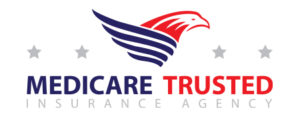Medicare Part C
What does Medicare Part C cover?
Medicare Advantage plans allow you to receive your benefits from a private insurance company approved by Medicare. If you have Medicare Part A and Medicare Part B, you can receive your benefits from a Medicare Advantage plan. Medicare Advantage plans are not supplemental insurance, but rather health insurance plans of their own. Medicare Advantage can also include prescription drug coverage in addition to vision, hearing, and dental. In most cases, you can join even if you have been diagnosed with a pre-existing condition. Medicare Advantage plans must follow guidelines established by Medicare but they can vary in terms of costs and rules.
Payments and Enrollment
With a Medicare Advantage plan, you may be able to lower your out-of-pocket costs. Some Medicare Advantage plans have lower co-payments than Medicare Parts A and B, but are also limited to certain service areas and often involve networks. You may have to pay a premium each month due to the extra benefits you may receive from the plan. You can enroll in a Medicare Advantage Plan during your Initial Enrollment Period, the Medicare Advantage and Prescription Drug Plan Annual Enrollment Period and there are also Special Enrollment Periods for certain situations. The amount that you pay yourself varies from plan to plan, so it is necessary to compare plans in order to find the plan most suitable to your needs. You can enroll in plans by paper, telephone or an online application.
What are my Options?
- Health Maintenance Organization (HMO) plans are required to cover both Part A and Part B health care, but can also offer additional benefits. You will only be able to visit physicians and hospitals that are within the HMO network unless there is an emergency. However, HMOs can lower costs, making them (in some cases) less expensive than Medicare Parts A and B.
- Preferred Provider Organizations (PPOs) allow you to use doctors, hospitals, and specialists within the PPO network. However, you are permitted to use health providers outside of the network at an additional cost to you without a referral.
- With a Private Fee for Service (PFFS) you are able to use any doctor or specialist, so long as they accept the terms, fees, and conditions of the PFFS. The plan chooses how much it will pay for the services, and you can spend more or less on PFFS plans than Medicare Parts A and B.
- In a Medicare Medical Savings Account (MSA) – you combine a medical savings account with a high-deductible. Medicare gives the plan an amount of money each year for your health care and the plan deposits this money into your account. You can use this money to pay for health care costs, even if they’re not covered by Medicare. If you use it for Medicare Part A and Medicare Part B services, you can count this towards your deductible. If you have used the money provided but have additional health care costs, you’ll have to pay for the Medicare-covered services out-of-pocket. After you reach your deductible, the plan will cover Medicare-covered services.
Find more information on these and additional Medicare Advantage Plans at Medicare.gov.

Helpful Links
Call us today!
Our licensed Medicare insurance specialists are available and ready to help you with all of your Medicare needs.
1(844) 735-2912
